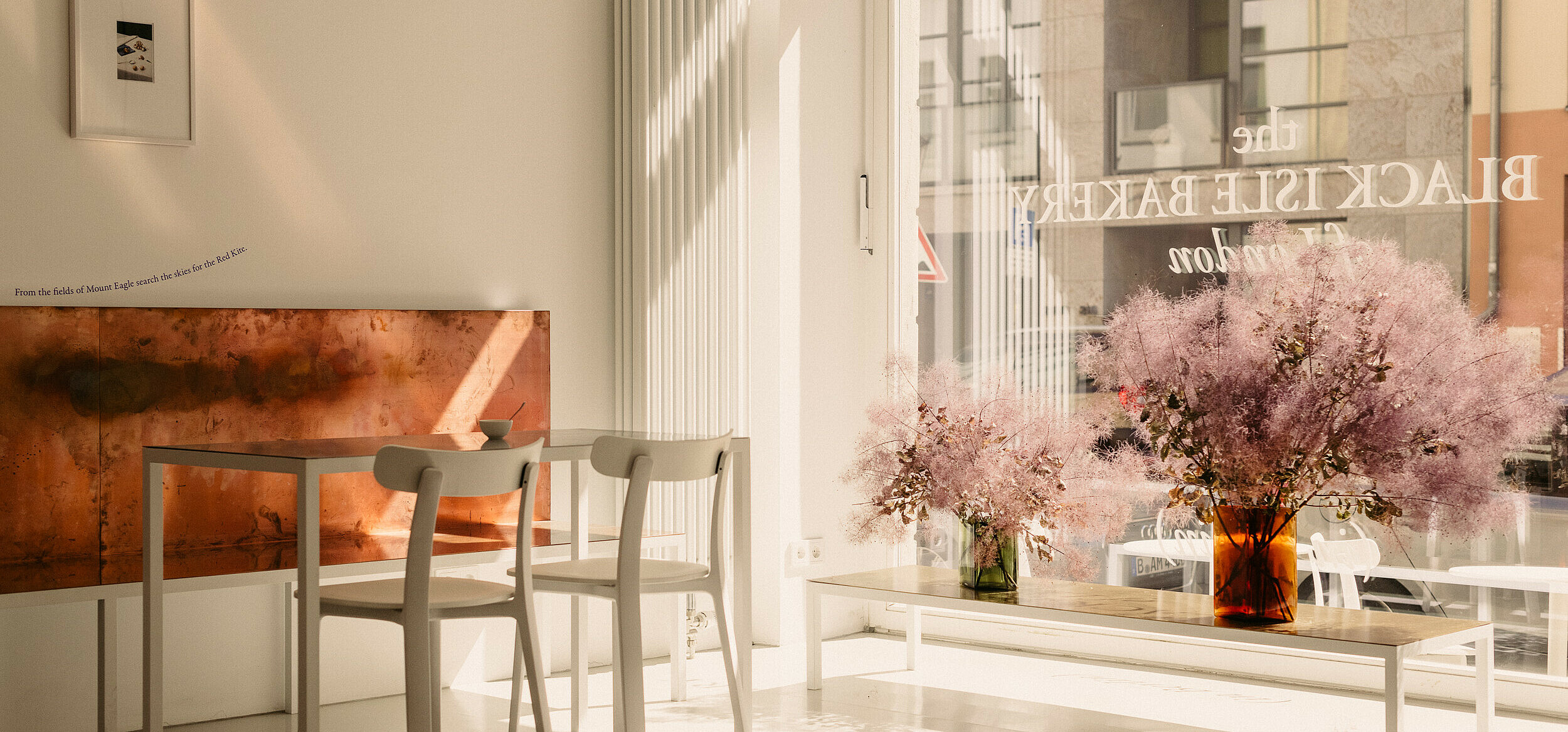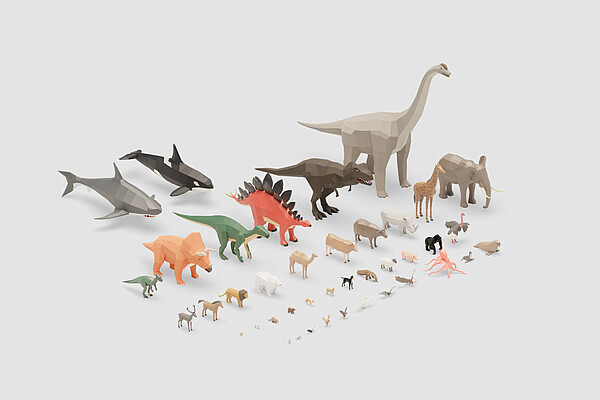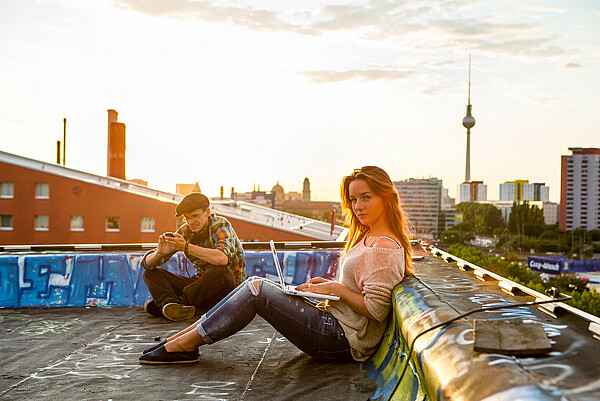London Bakery in Berlin: A founder's journey
Ruth Barry, Founder & Head Baker of Black Isle Bakery told her journey of setting up business in Berlin to Silicon Allee author Andrew Haw in 2018. She explains the connection between her upbringing in rural Scotland and how a strong, independent mindset have taken her between New York, London and Paris before settling in Berlin. An afternoon chat in our neighborhood allowed her to share valuable learnings for entrepreneurs entering a new city.
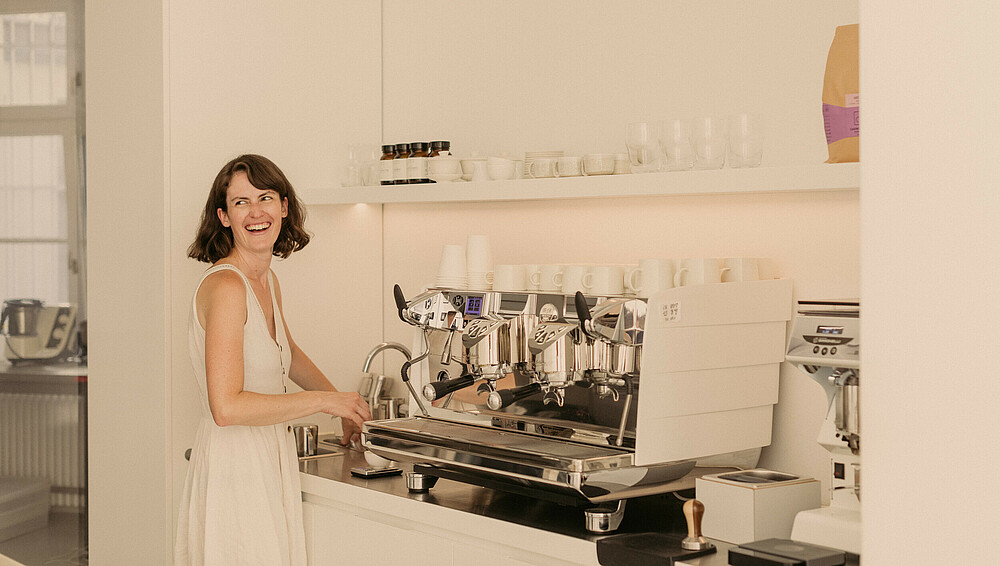
What year was Black Isle Bakery founded and why Berlin?
We started in 2012 in London but moved to Berlin in 2015.
I’d already been running Black Isle Bakery for a couple of years in London but it was just a catering company; I didn’t actually have a shopfront. But that was always the goal. London is so prohibitively expensive for anybody who doesn’t want to take masses of investment, and for me it was somehow important to stay independent and autonomous.
I was actually in a relationship with somebody in Berlin at the time, and my business felt young enough that I could pick it up and transplant it somewhere completely new. I came out for about six weeks to see what might be possible, to test the water, and I went back and I packed my bags and I came.
What inspired you to found a company?
I think it was really just a strong desire to work for myself and to create something I was really proud of, which I am. I think as people Scots are very entrepreneurial, but we do the things that we grew up learning, so things that we can do with our hands, things that are very practical, very pragmatic, but in Germany there are very strict regulations around Handwerk, and so it’s not actually very easy to come here and do the things that we’re good at. That’s at least what I have found.
There’s a very strong farming community on the Black Isle, which is decidedly not an isle, it’s a peninsula. So I learned from that community what it meant to respect the land and to respect produce. Simple things made well was just what I grew up with.
When I resigned from my job in London, I had this network of people that I could automatically plug into so I started catering for private functions for art galleries, for their openings, for fashion parties, things like that – the people that I knew sort of helped me along there.
When I moved to Berlin I didn’t have that network. I knew nobody here, and I had very little money. And so I knew I would have to operate differently. I thought that I would start by supplying other cafés in the city, so what I started doing initially in that six weeks was going round and seeing if there were places that I felt had the same sense of quality and the same kind of drive that I have. I had to ask for this to be a success here, whereas in London I just had this network to sort of fall back on. I just went out there, and I gave samples, and people seemed to like what I was producing. I started with about three different wholesale clients initially, and then people started coming to me, and that’s when I felt like I was in the right place, the word was spreading, and this really could work here.
I think that Berlin has always felt like an open city, somewhere that is open to your ideas and open to possibilities.I’ve been coming to Berlin since about 2006 and have always loved the atmosphere, the people.
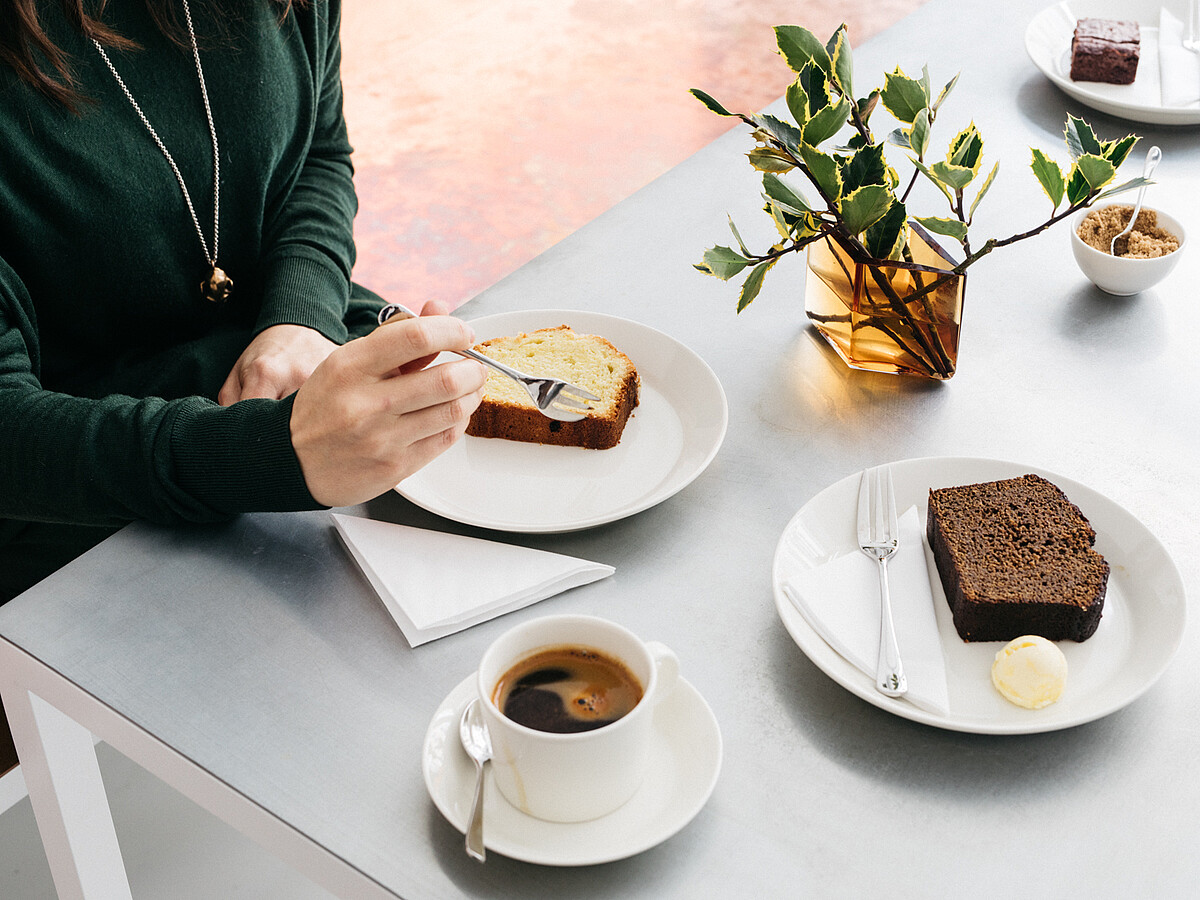
I guess you’re comfortable with networking after living in metropolises?
Not especially – it was very good for me to have to stand up and be assertive.
Did coming to Berlin help bring that out, teach you that?
Yes, I would say so. I spend my days here interacting with my customers, which I love.
It was very much a goal of mine to create somewhere that felt like it had a community surrounding it. And people love the bakery, they talk very fondly of it, I have got new friends out of having this place, it’s really a place where people meet. Taking what’s at hand and doing something with it. I’ve always loved the sharing aspect of baking. It’s birthdays, it’s celebrations, it’s meeting your best friend for a coffee and a cake, it’s going to the Highland Games and going round to all the baking stalls to find the best millionaire shortbread, you know. There’s so much about baking that’s really personal and just generally quite wonderful.
So all of these things were a great draw for me. But of course it’s extremely hard work. When I resigned from my job I went to Paris for three months to do an apprenticeship in a bakery there, and up until I started my own business I had never worked as hard in my life. I remember in the first days I would wake up in the morning and my hands had formed strange claws overnight and I couldn’t open them. They were so stiff, I was dividing out hundreds of kilos of bread dough every day.
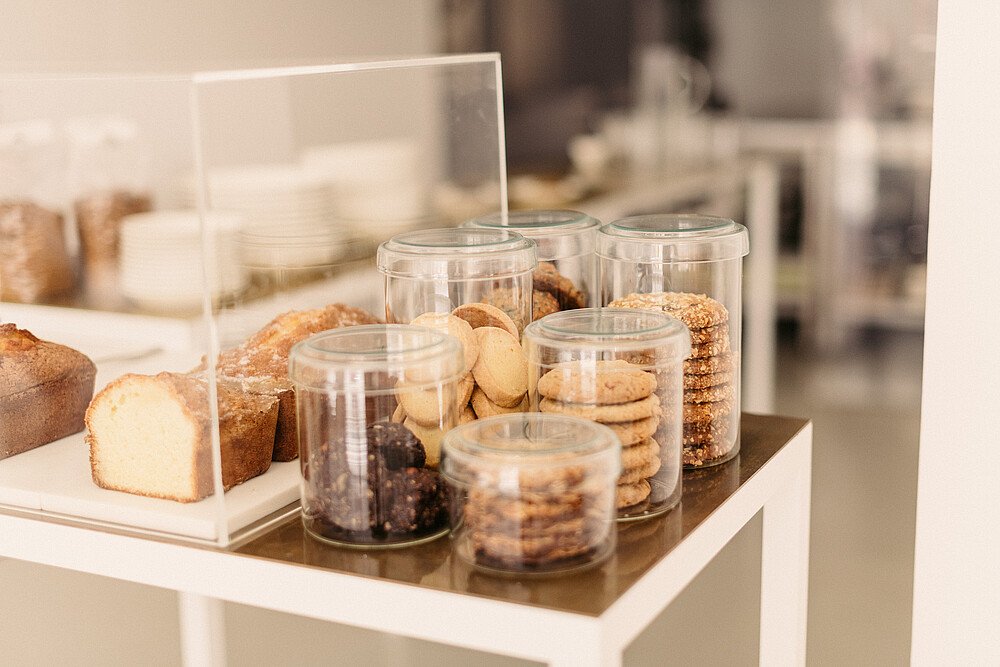
What advice would you have for entrepreneurs starting out in Berlin?
Do your homework. Find out exactly everything that’s possible to find out about where you want to be. I had a really very terrible beginning to the bakery.
I had rented a space in October 2015. I discovered after starting renovations, and quite by accident, that it had been rented to me fraudulently as suitable for commercial purposes, which in fact it was not, and it was registered with the local authorities as an apartment. To complicate matters, when we contacted the owners, we being me and my architects, to ask for some clarification, we were informed that he had died two days before; a twist nobody expects.
So all building had to stop and to cut a long story short his daughter inherited the property and was not especially helpful. And by that I mean she was extremely obstructive and I had to terminate the contract. I lost in the region of €20.000. It took another year before I found what has gone on to become the physical manifestation of Black Isle Bakery. And I was forced to open with no liquidity which ordinarily would be business suicide. Fortunately that hasn’t been the case, but it came pretty close to it.
I trusted that what I was told when renting a property to be true, and it wasn’t. So yeah, making sure that everything is exactly as it should be in order for you to what you do, finding out if there are any special permissions required to do what you do. I had to go to the Handwerkskammer to apply for an Ausnahmegenehmigung in order to be able to make what I make and sell it to other people and to avoid going to school for two years I had to prove how I was not in competition with certified Konditormeisteren. So that was a bit of a challenge.
I mean I really understand why the Meister system exists, and I think in certain cases it’s a very useful thing, like getting somebody who is a plumber for example, you can only hire somebody who is certified, and that means that you can have a certain level of expectation of the work that’s going to be done. However I don’t think it reflects the entrepreneurial spirit which I think is quite dominant now in Berlin, as well as other places.
Are you looking for reliable assitance in locating or relocaing to Berlin? Berlin Partner gives you a comprehensive overview of office locations, commercial estates and development zones in the city, organizes location tours and accompanies you to sight visits.Get in touch now!
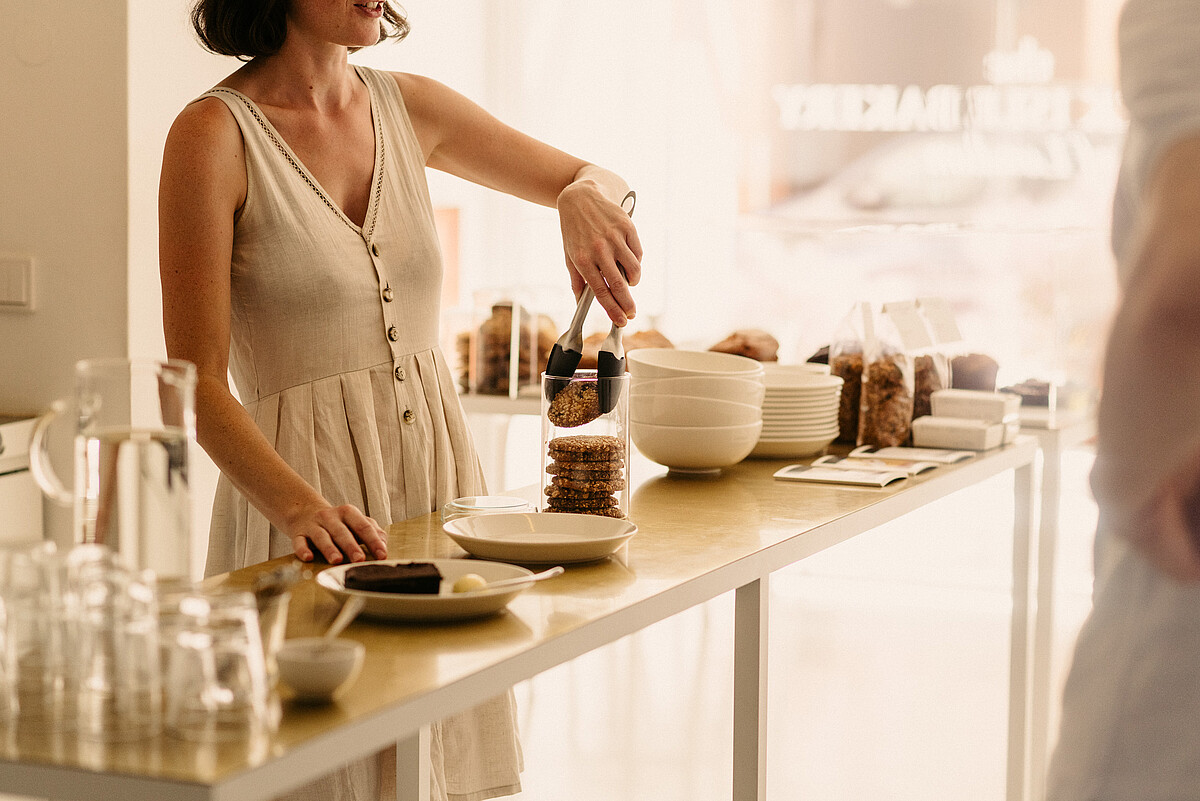
Where do you see Berlin five years from now?
I hope with a more interesting and solid food scene. I really think it’s changing, but I think for a long time people have been satisfied with mediocrity here, and so they don’t seek out excellence. I think Berlin still offers the opportunity to create something great and to retain control of it – it’s still possible. The rent freeze will be in place next year, so within five years hopefully the rent is still the same in the city. I just hope that it remains a city that people feel like they’re able to come to and have some kind of quality of life. I’m still aiming for the quality of life aspect of living here and I’m curious to see how Berlin changes for me when I feel some kind of level of financial freedom. I sued my former landlord successfully.
One of the great things that Berlin has going for it is that it doesn’t have a major financial center. I always think the city boys and girls in London ruined central London for everybody. And fortunately we don’t have that here. But that also means that people are slower to pick up on paying a reasonable price for food that’s handmade by people who care about where their ingredients come from and the impact it has on the environment.
Is there a single group/individual/project that has been the most influential to you during your time as an entrepreneur in Berlin?
My lawyer was fantastic. He was very patient and very kind, but I think the people who I have appreciated working with the most were the architects who did the interior design for me. I discovered them whilst making a mood board on Pinterest. They published a project which, incidentally, was their apartment on Dezeen, and I had pinned something from that particular project without actually knowing that they were Berlin-based architects. When I contacted them to ask if they would be interested in being involved in the project, they jumped at it; they were super excited. Not only are they exceptionally talented architects but they have become great friends of mine, they supported me way above and beyond anything that should ever have been expected of them when everything turned upside down with the legal proceedings. They’re just an example of two extremely good people doing extremely good things. I adore them.
I also have a fantastic business coach who helped me with all of the things like getting an Ausnahmegenemigungen to be able to actually produce what I produce, she helped me to complete my business plan, she helped me to apply for a bank loan to fund the space, and helped me stay independent.
Berlin Partner provides tailored support to fit your company's individual needs - free of charge. Whether it is in regard to immigration issues, financing your venture, recruting employees or finding business partners. Get in touch now!
What’s your favorite spot in the neighborhood?
One of my favorite places to go with Sally (pet Dachshund) is the small park by the wall memorial off Mauerpark. It’s a really sweet spot, and she’s pretty much guaranteed to do her zoomies around that park! Bonanza is one of my clients, they’re my local coffee shop, so I like to go and drink a coffee with them.
Do you think Berlin’s informal nature and unique history has been a positive aspect of your time in the city?
I think the way that Berlin especially has handled the history of Germany is quite remarkable and it says a lot about people here. I think that Berlin is still not as diverse as other cities that I’ve lived in, but I also see that changing and it has changed in the five years that I’ve been here.
You know part of my vision in creating this bakery was that, although I’ve created something that is not necessarily somewhere that appears to be open at first glance, because it looks very expensive and well-finished and like a gallery and people are intimidated by galleries, but for me this is a safe space for absolutely anybody who walks through the door . That’s an instruction that I give to my staff that it doesn’t matter who walks through the door you greet them with warmth and respect, and that is for me non-negotiable.
Finally, Coffee, Tea, or Club Mate?
Coffee. Always. I can’t continue my day without my classic single shot espresso and cappuccino. I have them one after the other, at least once a day.

This interview was conducted by Andrew Haw and originally published in Silicon Allee.
Header image: Robert Rieger

